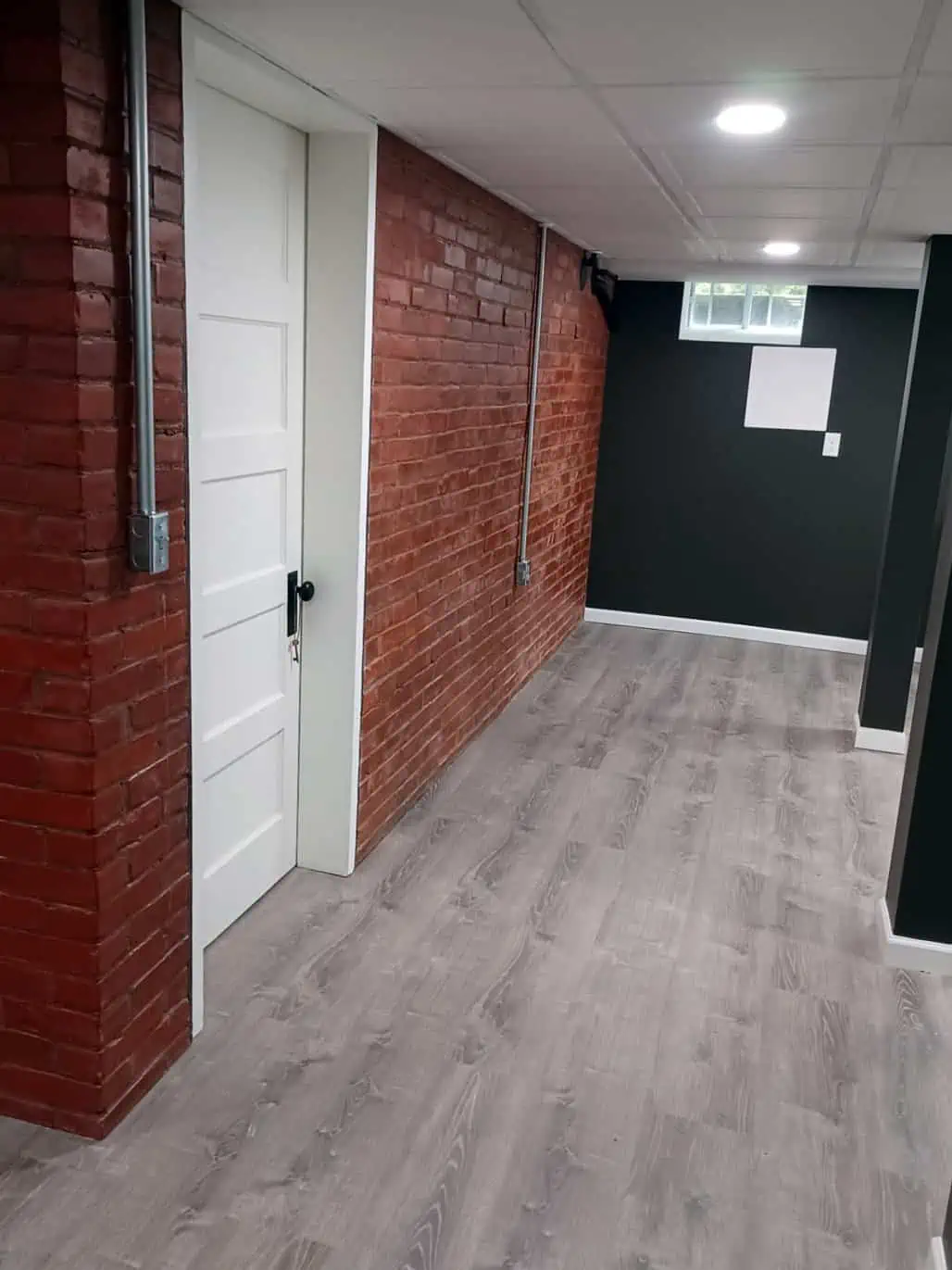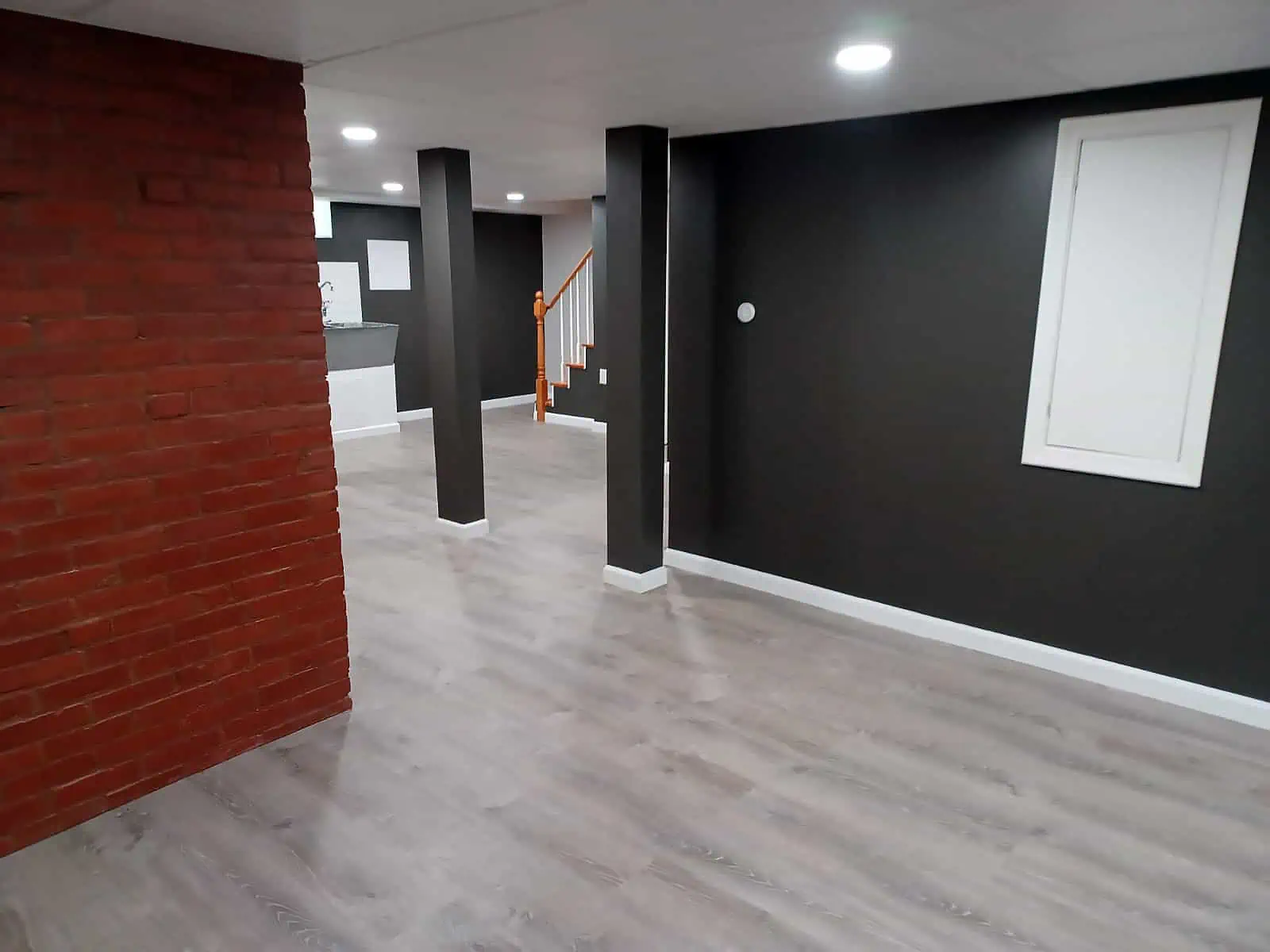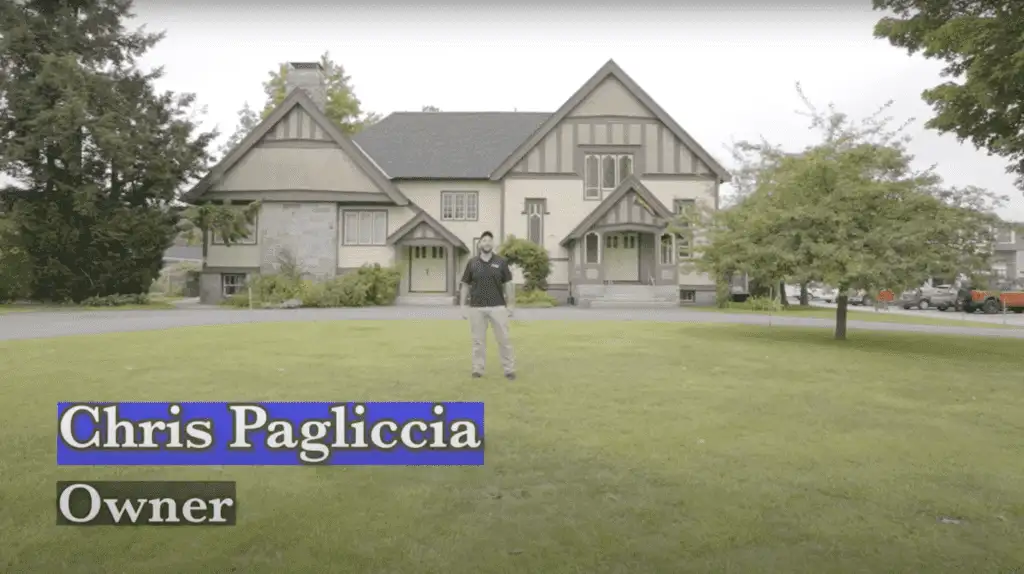Basement Finishing Weston MA
Transforming an unfinished basement into a functional and appealing space can significantly improve a home’s value and livability. Basements often hold untapped potential, whether for extra living space, a home office, or a recreational area. Homeowners in Weston, MA, have plenty of options for turning their basements into highly practical, beautiful additions to their homes.
Real People - Real Great Results
Crawl Space Video Playlist
Benefits of Basement Finishing
Finishing a basement is more than just a home improvement project—it’s a smart investment in both functionality and value. For homeowners in Weston, MA, the potential benefits of converting an unfinished basement into a finished space can ripple across a variety of areas.
- Maximizing Space: Let’s face it: an unfinished basement is dead weight in your home. It collects old holiday decorations, boxes of forgotten knick-knacks, and maybe a spider or two. But once finished, it transforms into livable, usable square footage. Whether you’re creating an extra bedroom, a snug family den, or just a well-organized storage area, you’re essentially unlocking a second house without the hassle of an addition.
- Boosting Property Value: A finished basement doesn’t just make your home feel bigger; it makes it worth more. For prospective buyers in Weston’s competitive real estate market, a fully finished basement isn’t just a “nice-to-have”—it’s often the deciding factor. It’s extra usable space without the extra build. The ROI speaks for itself.

- Improving Utility: From a custom home theater to an at-home yoga studio, a finished basement is your ultimate Swiss Army room. Need a quiet nook to work from home? You’ve got it. A space for Friday night poker games? Done. It’s the kind of adaptable utility that makes your home work harder for you.
- Enhanced Energy Efficiency:Let’s not forget: finishing a basement isn’t just about aesthetics. Properly insulating and sealing this space can stabilize your home’s temperature, keeping the cold from creeping in during those notorious New England winters. Add in reduced drafts and lower energy bills, and you’ve got a basement that pays dividends long after the final coat of paint dries.
Transforming your basement isn’t some lofty dream—it’s a practical upgrade that changes how you live, how much you save, and, when the time comes, how much your home is worth. Simple as that.
Pre-Project Considerations
Assessing the Basement's Condition
Before you grab a hammer or call a contractor, pump the brakes—you need to assess the state of your basement. Ignoring foundational issues upfront is asking for costly headaches later. Here’s what you’re looking for:
- Moisture or Water Damage: Check walls and floors for any dampness, discoloration, or mold. Pay attention after heavy rains. A dry basement today doesn’t mean it stays that way. Waterproofing systems, like sump pumps or drainage upgrades, might be a must.
- Cracks: Small ones? Maybe superficial. Larger cracks in walls or floors? Those could signal shifting foundations or structural problems. Call in a specialist to determine what’s normal and what’s not.
- Insulation: If your basement feels like a freezer in December or a swamp in July, inadequate insulation could be the culprit. Fix that now to save yourself energy bills—and comfort issues—down the line.
- Old Wiring or Plumbing: Basements tend to harbor outdated systems. If wires look frayed or plumbing makes unsettling groaning noises, you might have to upgrade before moving ahead.
Bottom line? Spending time here saves money (and sanity) later.
Local Building Codes
Basement projects sound fun until you’re hit with permit delays or fail a town inspection. Weston, MA, has specific codes and they’re non-negotiable. Here’s how to stay above board:
- Permits: You’re legally required to pull them for most finishing work. No shortcuts. Your contractor should know the drill and handle it, but always confirm it’s done.
- Egress Compliance: A finished basement bedroom or living space needs a way out in emergencies. This could mean enlarging or adding windows, or even putting in a secondary door—extra cost, but mandatory.
- Professional Consultations: Hire someone who speaks fluent “building code” to ensure your renovation blueprint aligns with town expectations. Inspectors aren’t shy about sending you back to square one if you don’t.
Remember, Weston’s charm doesn’t come cheap—and neither do compliance mistakes. Do it right the first time.

Ideas for Basement Uses
When it comes to unlocking your basement’s full potential, the beauty lies in its versatility. Here are some popular and practical ways homeowners in Weston, MA, are transforming their unfinished lower levels into purposeful spaces:
- Family Room: Imagine a snug retreat where your family gathers for popcorn-filled movie nights or spirited game days. Outfit the space with comfortable seating, a large TV, and maybe even a corner for board games or puzzles. Bonus: no more fighting over the remote in the living room.
- Additional Bedroom: Need space for guests or a growing family? Converting the basement into a bedroom is a straightforward solution. Add proper egress windows (code compliance is a must!) and some warm lighting to create an inviting haven.
- Home Gym: Save time and ditch the gym commute. Equip your basement with free weights, yoga mats, or even a treadmill to build your personal fitness oasis. Plus, no waiting for the squat rack.
- Home Office: As remote work becomes the norm, a distraction-free area is invaluable. With some noise-reducing insulation and a proper desk setup, your basement could become your productivity powerhouse.
- Recreation Area: For those who love entertaining, a rec room can be a game-changer. Think pool table, gaming console, or even a mini bar setup. Whether it’s a place to unwind or host friends, the possibilities are limitless.
The key to choosing the right use is identifying your household’s specific needs. One family’s home gym could be another’s craft room. Make it yours.
Designing the Layout
Designing the layout of your basement is where practical planning meets creativity. The goal is to optimize functionality while crafting a space that feels intentional, not like an afterthought. Here’s how to make smart decisions for a layout that works for you.
- Consider the Purpose: Form follows function, so let the intended use of the space guide your layout decisions. If you’re aiming for an open-concept family or recreation room, focus on fluidity by avoiding walls that break up sightlines. This keeps the space feeling airy and cohesive. On the other hand, if you’re carving out a home office or an additional bedroom, prioritize separation and privacy. Dividing walls or even half-walls can clearly define spaces while still maintaining a sense of openness in key areas.
- Lighting Choices: Basements tend to feel dim and cave-like due to limited natural light, but carefully planned lighting can work wonders. For overall brightness, recessed lighting is a top choice—it’s sleek, space-saving, and evenly diffuses light across the room. Pair these with wall sconces for a touch of ambient lighting, especially in sitting or reading nooks. To enhance the sense of light and space, choose light-colored paints for walls and ceilings—they help bounce light around and counteract the naturally darker environment of a basement.
- Flooring Options: Basement conditions require flooring that can hold up to both everyday wear and potential moisture. Vinyl flooring leads the pack for its balance of durability, affordability, and style—it mimics the look of wood or tile without the headaches of maintenance. Engineered wood is another strong contender if you crave a warm, high-end feel, while sealed concrete offers modern, industrial vibes with almost bulletproof durability. Whichever material you choose, be sure to add area rugs for both coziness and visual layering.
In short, design isn’t just aesthetics—it’s strategy. A purposeful layout and smart material choices can transform even the darkest, most uninspiring basement into a functional, welcoming extension of your home.
Budgeting for the Project
Basement finishing isn’t cheap, but smart budgeting can prevent overwhelm and overspending. At a baseline, you’re looking at costs that range from $30 to $100 per square foot, depending on labor, materials, and the complexity of design. A modest project—say, drywall, insulation, and some basic flooring—might run you $10,000 to $15,000. On the other end, a fully custom basement with high-end finishes, built-ins, and specialized utilities could climb well north of $50,000.
To keep your wallet and your vision aligned, start by setting clear priorities. Are you simply seeking functional space, or are you aiming for luxury? Break down the project into must-haves and nice-to-haves. For example, insulation and waterproofing are non-negotiable, while imported tiles for your new laundry nook might be something you postpone.
Next, shop around. Contractors don’t bite (well, the good ones don’t), so it’s worth gathering multiple quotes. When comparing, don’t just stare at the dollar sign—pay attention to what’s included. A lowball offer might omit essential services like debris removal or permits, leading to surprise costs later.
Speaking of surprises, assume they’ll happen. Maybe the subfloor needs replacing, or that old plumbing hasn’t aged gracefully. Set aside at least 10%–15% of your budget for contingencies. If nothing goes wrong (you lucky soul), you’ll have some unexpected funds to splurge on a nice sofa or sleek smart lights.
Bottom line: Budget with a blend of ambition and realism. Focus on getting the bones of the project right—good lighting, proper insulation, durable materials—and leave the bells and whistles for future upgrades if necessary. That way, you’ll end up with a space that’s practical, polished, and, most importantly, fully paid for.
Hiring a Professional
When it comes to basement finishing, knowing when to bring in a professional is key. Sure, the DIY route can seem appealing—paint, a bit of trim work, maybe even some flooring—but other aspects of the project demand more expertise than a YouTube tutorial can provide. Electrical wiring, plumbing systems, and insulation installation are best left to licensed pros who know their way around Weston, MA’s specific regulations.
Hiring experienced contractors doesn’t just ensure quality work; it also keeps the project compliant with local building codes. Weston has strict rules around things like egress windows, fire safety, and moisture barriers. Skipping these might not just be costly down the line—it could also be downright dangerous. Professionals ensure that everything’s done by the book, giving you peace of mind that your finished basement won’t just look good, but also function safely and efficiently.
When vetting potential contractors, don’t just go for the cheapest option. Look for companies with strong references, transparent pricing, and a proven track record in the Weston area. A good pro will walk you through the nitty-gritty details, help troubleshoot issues you might not have even noticed, and offer creative solutions tailored to your space and budget. Yes, it comes at a cost, but the payoff is a finished basement that you’d proudly show off—and one that lasts for years to come.

Maintaining Your Finished Basement
A finished basement needs ongoing care to remain a valuable asset rather than a costly headache. The key is to stay ahead of potential issues, many of which stem from moisture, wear, and the unique environmental challenges basements face. Fortunately, maintenance can be straightforward if you stick to a few core principles.
Stay on Top of Moisture
Even the best-insulated and sealed basements can encounter moisture problems—especially in Massachusetts, where weather is unpredictable. Make it a habit to:
- Inspect for Leaks: Check walls, floors, and windows for signs of water infiltration, particularly after heavy rains.
- Use a Dehumidifier: Keeping humidity levels in check prevents mold and mildew from taking hold. Aim for a range between 30-50%.
- Ensure Proper Drainage: Regularly clear gutters, downspouts, and the exterior perimeter of the house to guide water away from your foundation.
Regular Cleaning Matters
A finished basement isn’t immune to dirt and grime. Routine cleaning keeps the space inviting and helps identify problems early.
- Vacuum Flooring: If you’ve chosen carpet or rugs, vacuum often to control dust and keep fibers fresh.
- Wipe Down Surfaces: Furniture, shelves, and equipment should be dusted and cleaned to maintain longevity.
- Keep Air Circulating: Use fans or ventilation systems to keep the air fresh and prevent stale odors from setting in.
Routine Inspections
Periodic walk-throughs can save you from costly repairs. Look for:
- Cracks or Settling: Pay attention to any new cracks in walls or flooring—they could signal shifting or structural concerns.
- Signs of Mold or Mildew: Even faintly musty smells should prompt an immediate inspection.
- Electrical Safety: Confirm that outlets, light fixtures, and any installed devices remain in good working order.
HVAC and Plumbing Maintenance
Basements often house essential utilities. Regular upkeep here ensures everything runs smoothly.
- Inspect Systems Annually: Heating, cooling, and plumbing systems should be professionally serviced to prevent basement disruptions.
- Watch for Plumbing Leaks: Monitor pipes and fixtures for drips or corrosion that could cause water damage.
Adapt to the Seasons
New England seasons can be unforgiving, so prepare your basement accordingly.
- Winterize: Ensure exposed pipes are insulated and space heaters (if used) are safe.
- Prep for Summer: Check that air conditioning units and dehumidifiers can handle summer humidity.
Stay Flexible
As your family’s needs change, your basement might, too. Keep an open mind about reconfiguring the space, and don’t hesitate to make practical updates—whether it’s improving storage, upgrading furniture, or adding functionality to better match your lifestyle. By staying proactive, maintaining your finished basement becomes a manageable part of household upkeep. Regular attention ensures that your basement remains the comfortable, functional, and well-loved space it was designed to be.
Conclusion
Finishing a basement in Weston, MA, isn’t just about transforming an underutilized space—it’s an investment in your home’s potential. Whether it becomes a second family room, a much-needed home office, or a personal retreat, the possibilities are extensive and rewarding. The key lies in preparation: assess the basement’s condition, design the space with its purpose in mind, and ensure compliance with local codes. By partnering with skilled professionals and staying conscious of your budget, you can turn your basement into a space that both elevates your daily life and enhances your property’s value. In the end, a finished basement isn’t just a home improvement project; it’s a statement about what it means to truly maximize your home.
Reviews from Happy Customers
Our top priority is customer satisfaction, and we work closely with clients to understand their unique needs and goals.






